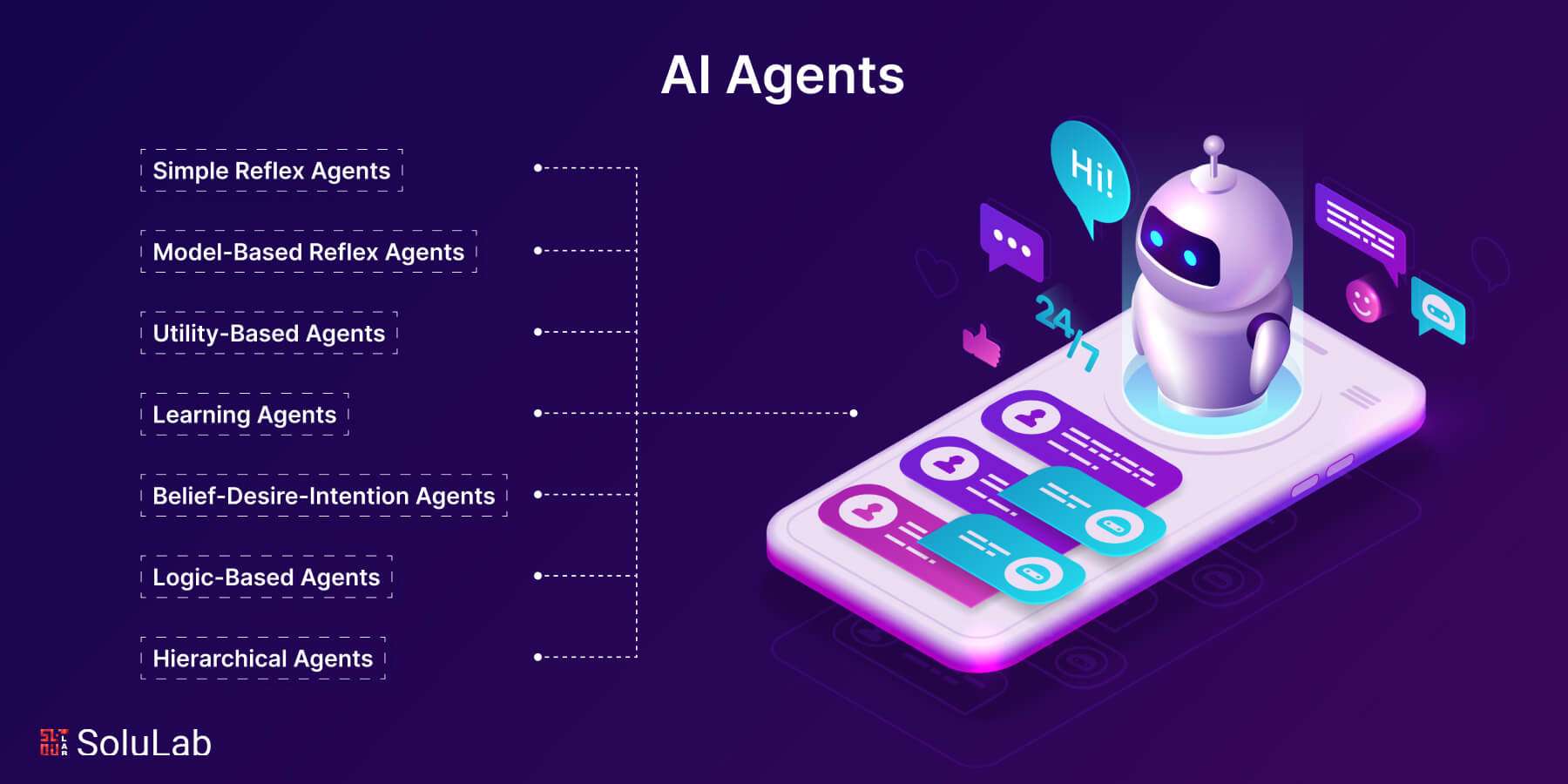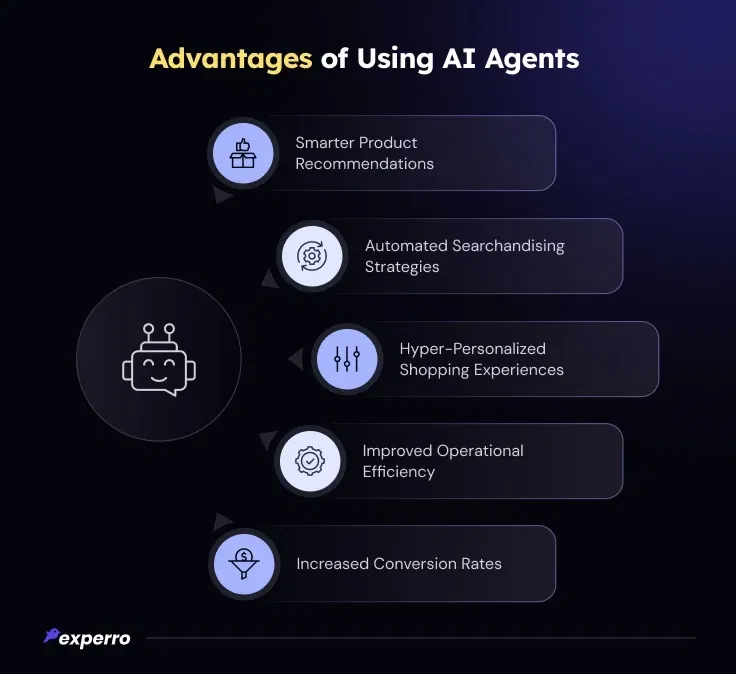Opening the Full Prospective of the AI Agents Marketplace: What You Required to Know
The AI agents marketplace presents significant chances for businesses aiming to boost efficiency and automation. Nevertheless, guiding through this landscape needs a critical approach. Business have to assess their specific requirements and determine proper AI remedies. As companies start this trip, they encounter crucial choices that can shape their future. What elements should they prioritize to guarantee successful integration and make the most of benefits? Comprehending these components is important for making informed choices.
Comprehending the AI Agents Marketplace Landscape
As the demand for AI options remains to grow, the landscape of the AI agents marketplace has progressed right into a vibrant ecological community. This marketplace incorporates a varied variety of product or services created to improve automation and effectiveness across various markets. Key players include developed technology firms, startups, and open-source areas, each adding distinct developments and functionalities.
The affordable nature of this atmosphere promotes fast developments, causing a range of AI agents tailored to details tasks, from customer care chatbots to intricate decision-making systems. As businesses significantly acknowledge the value of AI, they look for services that supply scalability and combination with existing technologies.
Governing considerations and moral ramifications even more shape the marketplace, engaging developers to focus on transparency and responsibility. Overall, the AI agents marketplace remains to expand, driven by technical innovation and a growing understanding of the transformative possibility of fabricated intelligence.
Trick Applications of AI Agents Across Industries
AI agents are transforming numerous industries by automating tasks that boost operational effectiveness and decision-making. In the healthcare industry, AI agents aid in diagnostics and patient administration, streamlining processes and enhancing end results. In finance, they assess market trends and help with trading, making it possible for quicker and much more educated financial investment choices. Retail industries use AI agents for stock management and personalized client experiences, maximizing sales strategies and inventory turnover.
Manufacturing likewise advantages, with AI agents keeping track of tools and predicting maintenance requires to lessen downtime. In marketing, they analyze consumer habits and automate targeted campaigns, boosting involvement and conversion prices. Moreover, AI agents play a vital function in logistics, enhancing supply chains and lowering prices via clever transmitting and need projecting. As organizations across these sectors adopt AI agents, they disclose brand-new degrees of efficiency and advancement, positioning themselves for future growth and competitive advantage.
Identifying the Right AI Agents for Your Business Demands
Just how can organizations figure out which AI agents line up ideal with their certain demands? To make educated decisions, organizations should begin by reviewing their operational objectives and recognizing the certain difficulties they face. This entails defining the key features that AI agents will sustain, such as client service, information evaluation, or process automation.
Once the needs are clear, firms can check out the marketplace for AI agents tailored to those features. They must think about aspects such as the agent's capacities, combination ease with existing systems, and flexibility to various operations. Furthermore, examining case researches or reviews from similar sectors can offer understandings right into effective applications.
Seeking advice from with technological professionals or performing pilot tests can even more improve choices, guaranteeing that the selected AI agents not just satisfy prompt functional demands however likewise line up with lasting critical objectives. This methodical technique boosts the chance of selecting the most reliable AI solutions.
Assessing AI Agents: Metrics and Performance Indicators
Evaluating the performance of AI agents calls for a clear collection of metrics and efficiency indications customized to the details objectives of the company (AI Agents Marketplace). Trick metrics usually consist of accuracy, which gauges the agent's ability to offer right results, and response time, reflecting the rate at which the representative processes requests. Furthermore, customer fulfillment scores offer insights into how well the representative meets individual assumptions
Interaction metrics, such as regularity of use and retention prices, can suggest the agent's effectiveness in maintaining individual rate of interest. Cost-effectiveness is an additional essential efficiency indication, identifying whether the advantages obtained from the AI representative justify its functional prices.
Lastly, flexibility and knowing rates are considerable, as they gauge the agent's capacity to boost over time. Together, these metrics give a comprehensive structure for reviewing AI agents, allowing companies to make enlightened choices concerning their combination and optimization.

Ideal Practices for Integrating AI Agents Into Your Operations
Effective assimilation of AI agents right into procedures requires a calculated strategy that lines up with the company's goals. Organizations must examine their certain requirements and determine the areas where AI can include the most value. This calls for a thorough evaluation of existing process and procedures to determine inadequacies.
Next, it is essential to select the appropriate AI agents tailored to these requirements, making certain compatibility with current systems. Training workers to function alongside AI agents improves approval and cultivates a joint atmosphere.
Additionally, companies need to establish clear interaction channels to promote comments and adjustments, guaranteeing continuous improvement of AI functionalities.
Lastly, keeping track of efficiency metrics post-implementation permits recurring analysis, aiding organizations adjust and maximize their AI approaches over time. By following these finest techniques, businesses can successfully leverage AI agents her response to boost efficiency and attain their critical goals.
Navigating Ethical Considerations in AI Fostering
What ethical problems emerge when organizations adopt AI innovations? The execution of AI agents presents numerous challenges, especially regarding liability, transparency, and justness. Organizations should grapple with guaranteeing that their AI systems do not bolster predispositions, as algorithms educated on historical information can strengthen existing inequalities. Additionally, the opacity of some AI decision-making processes can cause a lack of accountability, making it difficult to determine duty in the event of mistakes or negative outcomes.
Privacy issues additionally arise, as AI systems commonly require substantial data collection, questioning about approval and information safety. In addition, the prospective variation of jobs due to automation presents honest factors to consider bordering labor force effect and financial inequality. Organizations should navigate these intricacies thoroughly, promoting an ethical framework that focuses on human civil liberties and social welfare while maximizing the advantages of AI innovations. By resolving these honest considerations, companies can assure liable AI fostering.
Future Trends: What to Anticipate in the AI Agents Marketplace
The AI agents marketplace is poised for considerable advancement, noted by enhanced automation capabilities that enhance jobs across different sectors. Along with this, enhanced personalization attributes are expected to tailor user experiences better, accommodating individual choices and requirements. These fads recommend a future where AI agents end up being essential tools for both businesses and consumers.
Raised Automation Capacities
Emerging fads in the AI agents marketplace signal a substantial jump in automation abilities, improving markets and operations. As AI agents come to be much more advanced, they are significantly able to handle complex tasks with minimal human treatment. This advancement allows organizations to improve procedures, decrease costs, and enhance productivity. As an example, markets such as logistics and manufacturing are leveraging AI agents to automate inventory management and anticipating upkeep, leading to maximized efficiency. Furthermore, the assimilation of maker discovering algorithms empowers these agents to discover from past data, boosting their effectiveness gradually. As automation becomes extra prevalent, organizations can anticipate transformative changes in exactly how they run, leading the way for cutting-edge remedies and new competitive benefits in the marketplace.

Enhanced Personalization Functions
Exactly how will improved personalization functions reshape individual experiences in the AI agents marketplace? These advancements are readied to revolutionize just how individuals interact with AI agents, customizing solutions to individual preferences and needs. By examining customer data and habits, AI agents will certainly offer suggestions and remedies that resonate more deeply with each user. This change in the direction of hyper-personalization will certainly not just improve individual complete satisfaction however additionally foster higher commitment to specific platforms. Furthermore, the assimilation of feedback mechanisms will certainly permit AI agents to adjust in real-time, making certain that the individual experience continuously progresses. As these attributes come to be common, the marketplace will likely see raised involvement and retention, driving advancement and competitors among AI programmers to offer the most personalized experiences possible.
Often Asked Questions

Exactly how Do I Select the Right AI Representative Vendor?
Selecting the appropriate AI representative supplier involves assessing their competence, dependability, and client responses. Assessing the technology's compatibility with existing systems and comprehending prices versions are vital actions in making an informed choice.
What Are the Expenses Related To Releasing AI Agents?
The costs related to releasing AI agents consist of licensing fees, facilities expenditures, upkeep, training, and prospective integration prices. Organizations must evaluate these aspects to properly spending plan for implementation and assure a successful release method.
Can AI Agents Be Custom-made for Certain Organization Requirements?
AI agents can certainly be customized to satisfy details company requirements, permitting companies to tailor functionalities and performance - AI Agents Marketplace. This flexibility improves functional effectiveness, addresses one-of-a-kind challenges, best site and cultivates development in various industries and sectors
Just how Do I Make Sure Data Privacy With AI Agents?
To assure data privacy with AI agents, companies should carry out robust security, develop clear data handling policies, carry out regular audits, and check here use anonymization strategies to safeguard sensitive details during processing and storage.
What Assistance Alternatives Are Available After AI Representative Application?
After carrying out AI agents, companies generally have access to different assistance choices, consisting of technological aid, individual training, and normal updates. These sources ensure smooth operation and assistance deal with any challenges that may arise post-implementation.